All Stories
-
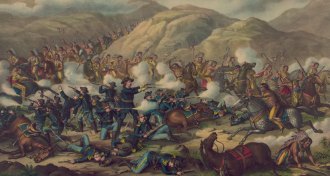 Archaeology
ArchaeologyTales of rampant suicide among Custer’s soldiers may be overblown
Few of Custer’s men killed themselves in the face of overwhelming Native American numbers at the Battle of the Little Bighorn, skeletal data suggest.
By Bruce Bower -
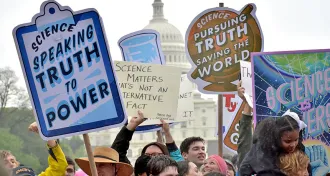 Science & Society
Science & SocietyAn antiscience political climate is driving scientists to run for office
Hoping to inject evidence-based science into policy, more scientists are putting their name on the ballot.
-
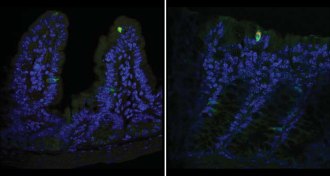 Health & Medicine
Health & MedicineThis is how norovirus invades the body
Norovirus targets a rare type of gut cell, a study in mice finds.
-
 Genetics
GeneticsSweet potatoes might have arrived in Polynesia long before humans
Genetic analysis suggests that sweet potatoes were present in Polynesia over 100,000 years ago, and didn’t need help crossing the Pacific.
By Dan Garisto -
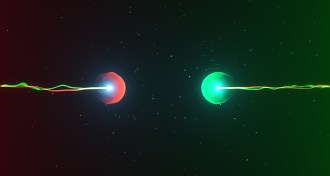 Chemistry
ChemistryUsing laser tweezers, chemists nudged two atoms to bond
This is the first time researchers have purposefully combined two specific atoms into a molecule.
-
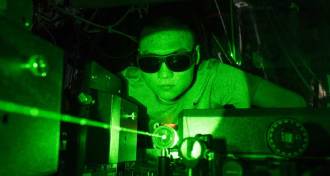 Physics
PhysicsA key constant’s new measurement hints ‘dark photons’ don’t exist
New measurement of the fine-structure constant is the most precise yet.
-
 Animals
AnimalsThese hummingbirds aim their singing tail feathers to wow mates
Acoustic cameras reveal how male Costa’s hummingbirds can aim the sound produced by fluttering tail feathers during courtship dives.
By Susan Milius -
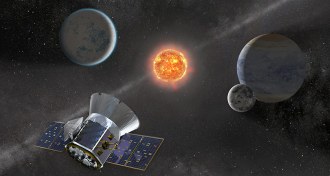 Astronomy
AstronomyWith the launch of TESS, NASA will boost its search for exoplanets
The Transiting Exoplanet Survey Satellite will set the stage for the next chapter of exoplanet exploration.
-
 Paleontology
PaleontologyColorful moth wings date back to the dinosaur era
Microscopic structures that scatter light to give color to the wings of modern butterflies and moths date back almost 200 million years.
-
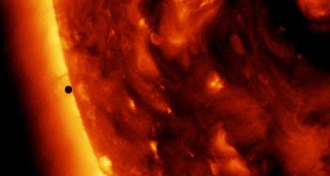 Physics
PhysicsEinstein’s general relativity reveals new quirk of Mercury’s orbit
A tiny effect of general relativity on Mercury’s orbit has been calculated for the first time.
-
 Health & Medicine
Health & MedicineShould you bank your baby’s umbilical cord blood? Here’s a guide for thinking through the issue.
The professionals have advice to give, but the decision is ultimately a personal one.
-
 Health & Medicine
Health & Medicine50 years on, vaccines have eliminated measles from the Americas
Thanks to high vaccination rates, measles has mostly disappeared from the Americas.